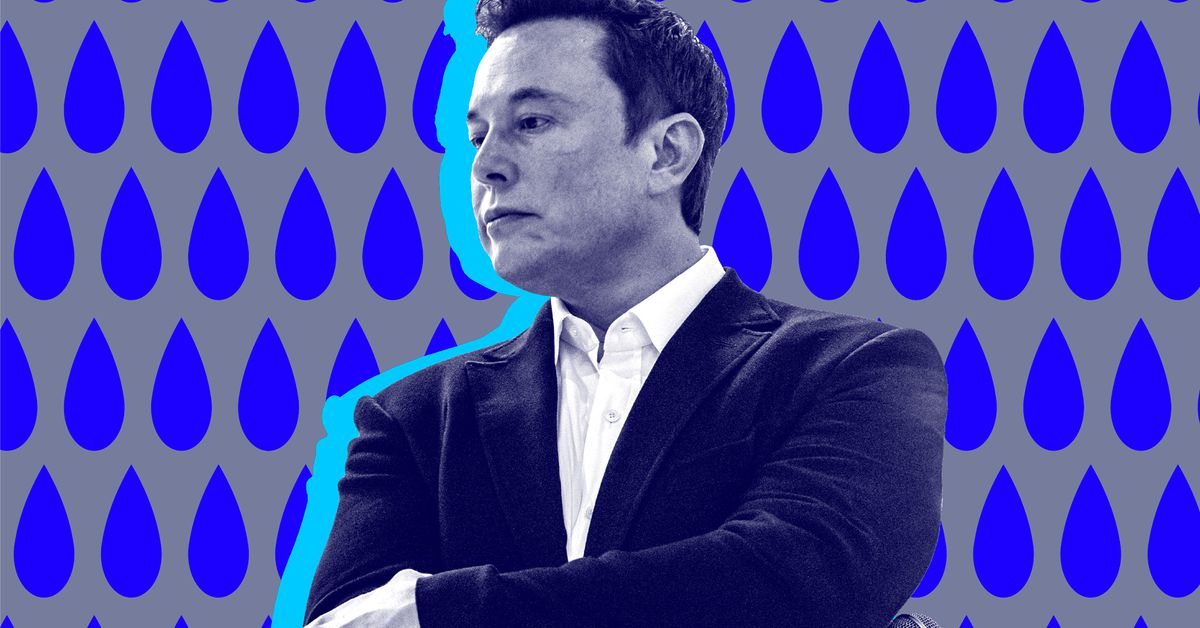/cdn.vox-cdn.com/uploads/chorus_asset/file/24090221/STK171_VRG_Illo_11_Normand_ElonMusk_11.jpg)
Elon Musk’s so-called Twitter sitter is here to stay.
Given the frequency and volume of Musk’s tweets — and the fact that he now owns Twitter — it’s unclear whether Musk is abiding by the order to have the Twitter sitter review his tweets. But his argument that the SEC was exploiting the consent decree “to conduct bad-faith, harassing investigations of his protected speech” was found to be meritless by the court, according to a ruling released today.
The court notes that, to the contrary, the SEC has only investigated three of his tweets: the infamous 2018 “funding secured” tweet that subsequently resulted in the consent decree, a $40 million fine, and Musk losing the chairmanship of Tesla; and two other tweets, one that contained misleading information about Tesla’s vehicle production, and the other regarding a poll proposing Musk sell 10 percent of his Tesla stock.
“Each tweet plausibly violated the terms of the consent decree,” the Court of Appeals for the Second Circuit in New York City wrote in its ruling.
The whole ordeal started with a tweet on August 7th, 2018, in which Musk claimed to have the funding to take Tesla private at $420 a share. (Tesla has been a publicly traded company since 2010.)
The SEC immediately launched an investigation, eventually concluding that, while he had held a few meetings with Saudi Arabia’s sovereign wealth fund, Musk “had never discussed a going-private transaction at $420 per share with any potential funding source.” Musk eventually reached a settlement with the SEC requiring him to step down as chairman of Tesla and establishing the position of Twitter sitter.
Last February, Musk was found not liable for losses incurred by investors who accused him of fraud based on his tweets in August 2018 that he was thinking of taking the company private. Musk was on the hook for potentially billions of dollars of damages had the jury found him liable for those losses.
But ever since agreeing to the settlement with the SEC, Musk has been trying to wriggle his way out of the consent decree that he have a lawyer review tweets that could have a material impact on Tesla before publishing them. If the Twitter sitter does indeed exist, no one has stepped forward to claim the job. Tesla has declined to identify the person. And Bloomberg’s Dana Hull, who has been investigating the Twitter sitter for years, has yet to turn up a name.
Whoever the mystery lawyer may be, the court was unmoved by Musk’s arguments that he should be allowed to tweet unfettered by the consent decree. “Had Musk wished to preserve his right to tweet without even limited internal oversight concerning certain Tesla-related topics, he had ‘the right to litigate and defend against the [SEC’s] charges’ or to negotiate a different agreement — but he chose not to do so,” the court of appeals wrote. “Having made that choice, he may not use Rule 60 to collaterally reopen a final judgment merely because he has now changed his mind.”
Services Marketplace – Listings, Bookings & Reviews
